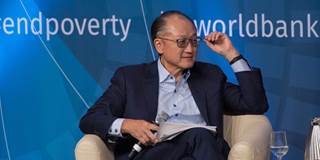OnPoint Subscriber Exclusive
The Big Picture brings together a range of PS commentaries to give readers a comprehensive understanding of topics in the news – and the deeper issues driving the news. The Big Question features concise contributor analysis and predictions on timely topics.

Is the World Bank Losing Its Way?
The World Bank is changing direction under its president, Jim Yong Kim, turning to Wall Street to invest in infrastructure projects in poor economies instead of lobbying donor countries to finance public goods. Has Kim seen the future, or is he neglecting the Bank's mission?